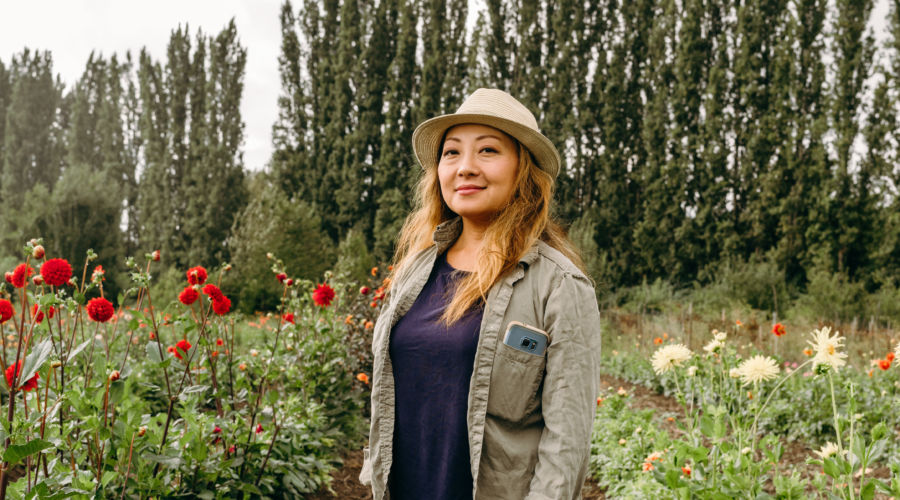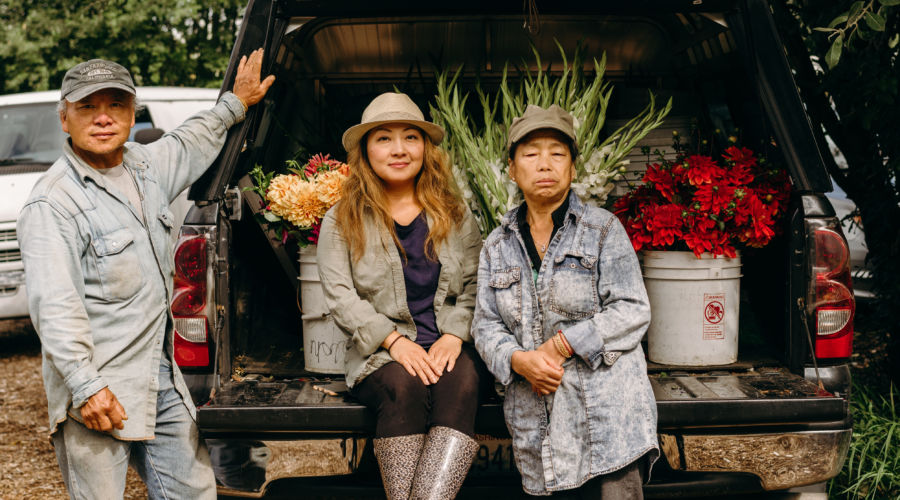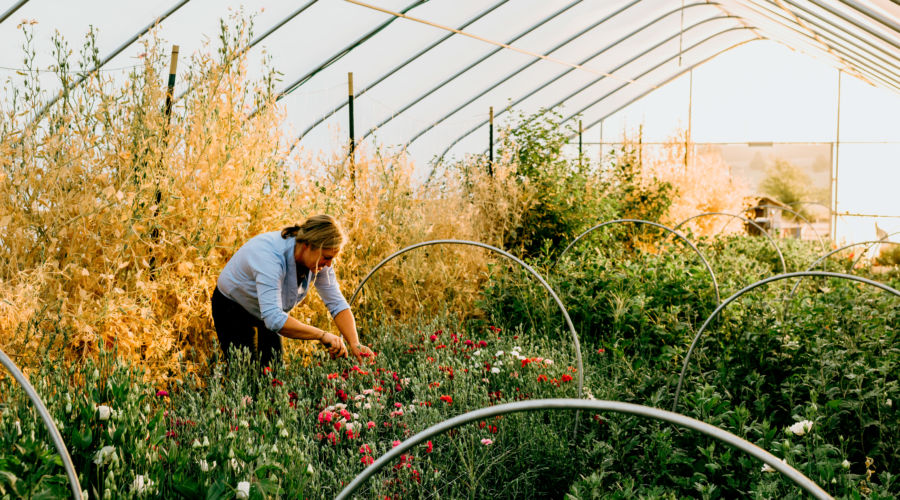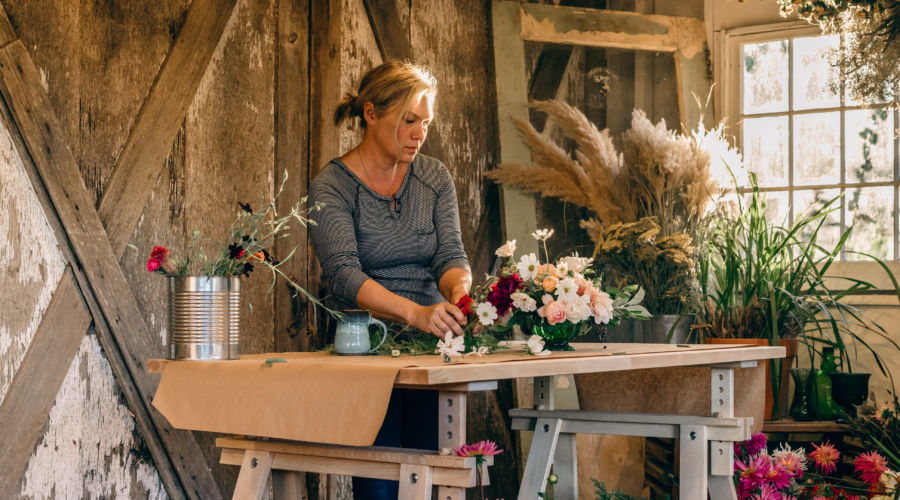
Meet the Female Farmers Leading a New Generation of Flower Power
Three hardworking women in the Pacific Northwest show that running thriving floral farms, with family in tow, can build a bridge to the next generation

Kyle Johnson
Carli Spielman
Kids: Daughter, Frankie, 12; son, Charlie, 9
Business: Wild Rabbit Flowers, Hope, B.C.
Known for: Large floral installations, huge floral arches, floral chandeliers
Favorite flowers: Dahlias

Live Your Ideal Lifestyle. Spielman tried different approaches to running a business, from managing a knitting and natural-dye company to opening a traditional flower shop. “At the shop I worked myself to the bone. The work didn’t stop, and it was tough being a single parent, a single owner, and the sole employee,” says Spielman. “The hardest part, though, was being inside. I did it for a year and didn’t grow a garden that year.” Instead, she’s rightsizing her business for her family, not tailoring her family for her business. “I want to be able to work super hard for four hours, then go jump in the lake, then come back to work,” she says. “This is the life I want for me and my kids.”
Grow Your Thanks. When Spielman was buying her country home in Hope there was a bidding war. “The previous owner had a huge garden and chose me because I was a single mom who loved gardening,” she says. “I never forgot this. When she passed away I put together a small bouquet that she held in her casket that was made up of flowers at the garden.” Flowers can mean so many different things, but “thank you” often tops the list.
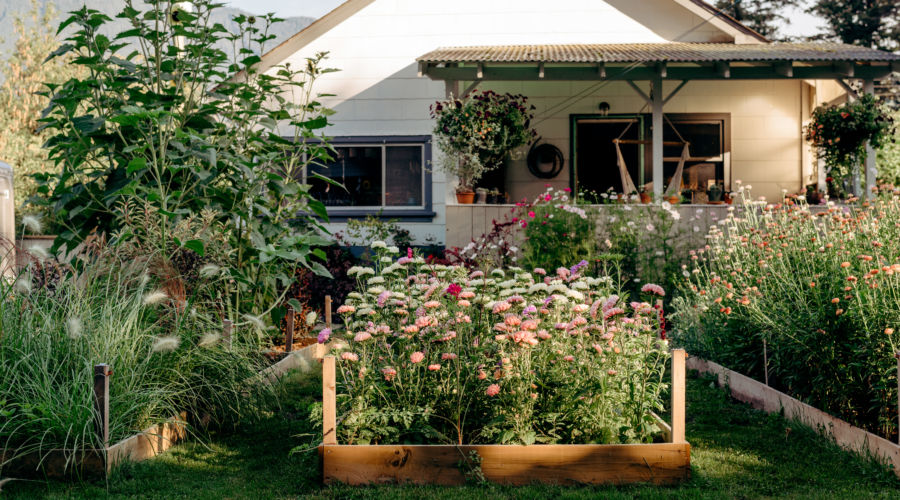
Be Stridently Local. When Spielman was running her flower shop she says that one of the hardest parts wasn’t just running the business but seeing how much waste and trash the traditional floral industry produces. “I was opening packages of cellophane and plastic that were used to ship flowers from overseas and thinking ‘Why am I doing this? It’s April and I could be growing this flower right now in my yard,’” she says. “I got a firsthand look at what I didn’t want to be.” With her own farm she uses what she grows first (about 30 percent of what she sells). Then she buys from other local farmers and from around British Columbia. Next, she’ll turn to farms in the Northwest or California. Her very last choice is buying internationally.
Teach by Example. “Sometimes I have to drag the kids outside. They see flowers and plants all the time, so they’re sort of over it,” says Spielman. But they learn through osmosis. When she’s out running errands or traveling with the kids they’ll point out plants and say, “Hey look, the cherries are in bloom,” or, “Did you see that evergreen? It has a crazy-looking leaf.”
Year Eng
Kids: Daughter, Kyra, 10; son, Jeremiah, 7
Business: Thai Thao Farm, Woodinville, WA
Known for: Wedding flowers, wholesale flowers, hand-tied flower bouquets sold at Pike Place Market
Favorite flowers: Peonies and dahlias
From a prime location in Pike Place Market, Year Eng has helped her family’s flower-farming business thrive while keeping it small enough for three people to manage. “It’s just me; my mother, Bao Cha; and father, Thai Thao,” says Eng. “I love being involved in every aspect of the business and hand-crafting the flowers. Tying bouquets at the market has become part of who I am.”
